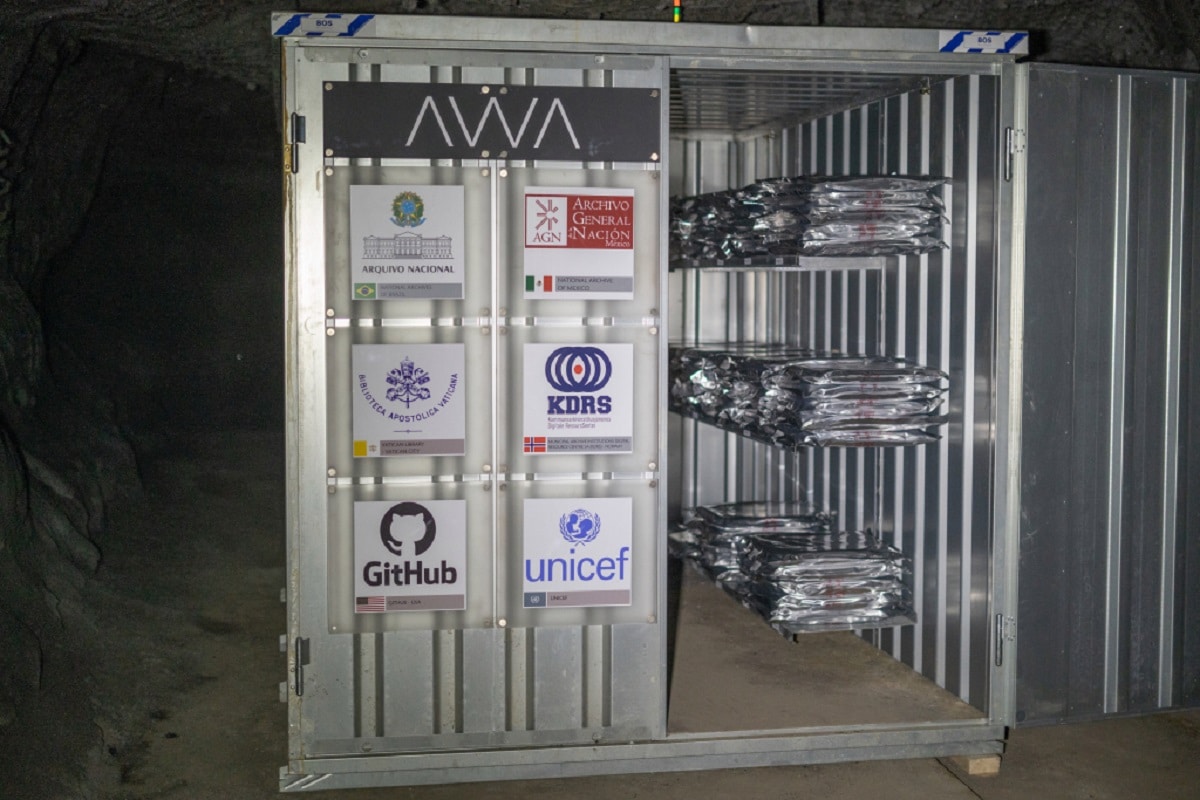
In November of last year we shared the news here on the blog about an initiative by GitHub called "Artic Code Vault" in which the idea is save the contents of the repositories on a storage medium that has a longer shelf life.
With that GitHub ensured that part of the global knowledge be stored in a safe way. And it is that it wants to contribute to the resolution of this problem and others such as the occurrence of disasters that probably cause the loss of content.
And now several months later that GitHub announced the implementation of the project to create an open source archive hosted in the Arctic World Archive repository, which is capable of surviving in the event of a global catastrophe.
All the code has already been stored in 186 units of piqlFilm film, which contain photographs of information and allow information to be stored for more than 1000 years (according to other sources, the useful life is 500 years).

The storage was created from a 150 meter abandoned coal mine deep enough to ensure information security even in the case of the use of nuclear or electromagnetic weapons.
Millions of developers around the world contributed to the open source software now stored in the Arctic Code Vault. To recognize and celebrate these contributions, we designed the Arctic Code Vault Badge, which is displayed in the highlights section of a developer profile on GitHub.
The file stores approximately 21 TB of information A that represents the code for many open source projects hosted on GitHub.

Developers whose code is in the archive are marked in the GitHub profile with the special "Arctic Code Vault Collaborator" tag. In case of problems with the Arctic World Archive, long-term duplicate files are being considered.
Microsoft's plans to develop the initiative point to the intention of creating a more global information archive, which covers the general portion of knowledge accumulated by the computer industry, including books, documentation, information on software development, programming languages, electronics, microprocessors and computing, as well as information on the history of technological development and cultural aspects.

The objective of the initiative is provide complete information which can help researchers of the future to recreate current technologies and better understand the modern world.
At the same time, several alternative projects are being developed to create files with code. As an experimental project, Silica On long-term storage units based on quartz glass wafers it stored the most popular 6000 GitHub content repositories. Data is saved by physically changing the properties of a material it is not exposed to electromagnetic radiation, water and heat, allowing a retention time of tens of thousands of years.
The project «Internet Archive» has kept in its archive a portion of GitHub public repositories as of April 13. In total, they are saved approximately 55 TB of information about repositories, including comments, issues, and other metadata.
In the future, the creators of Internet Archive are intended to provide the ability to extract code from the project from the file using the command "git clone" an analog of the Wayback Machine service is being developed for the code).
The Foundation Heritage Software, founded by the French National Research Institute (Inria) With the support of UNESCO, the goal of accumulating and preserving the source code has been set.
Currently, the Software Heritage archive already has 130 million projects and includes a complete history of their development. 100 million of these projects are imported from GitHub.
In this project, anyone can request their code archive at save.softwareheritage.org by providing a link to the Git, Mercurial, or Subversion repository.
Finally, if you are interested in knowing more about it, then consult the details in the publication that was made on the Github blog.
This initiative strikes me as one of the smartest things humanity has done in recent decades. Software (especially Free Software) is transversal to all the activities of contemporary civilization. A good piece of software is a true masterpiece, and it deserves to be preserved.
great, now when the aliens arrive and we no longer exist they will have toilet paper.
And what is the use of storing all that code if in case of a natural global disaster there is no hardware that can use it?